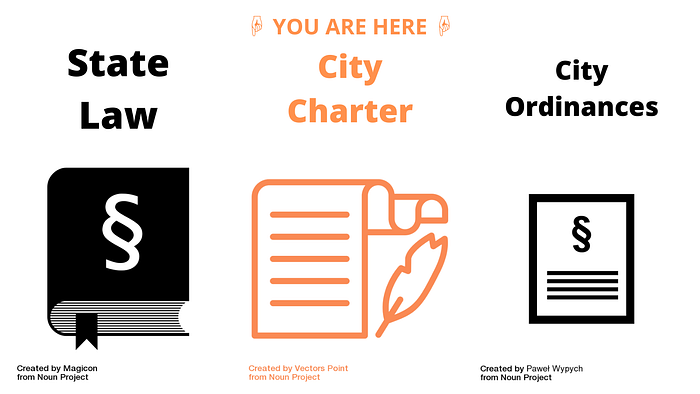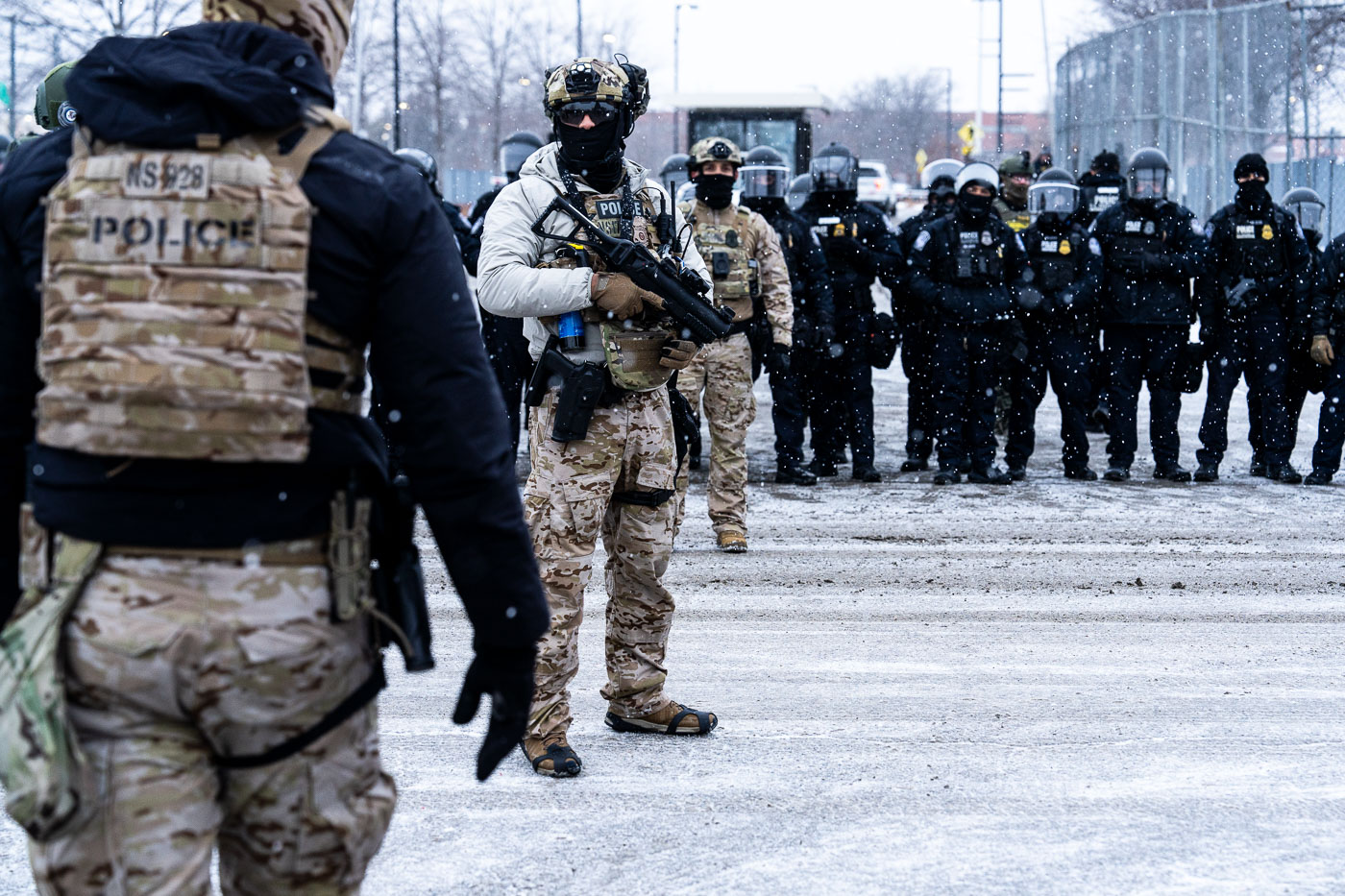Minneapolis, we have a problem.
There’s a lot of inaccurate information flying around about Minneapolis Ballot Question 2, which is about replacing a police department with a department of public safety. (If you don’t know what a ballot question is or what I’m referring to, don’t worry, I explain that below. It’s important. Keep reading.)

Some of the inaccurate information is what I would characterize as lies by omission. Some of it is just straight up malicious disinformation (damned lies). I despise both, and I believe every voter deserves accurate information so that each voter can decide for oneself whether to vote "Yes" or "No" on a ballot question. So I’m here to set the record straight.
What This Article Isn’t
This article is not a debate or analysis about the merits of the ballot question. What do I mean by that? I mean that this article is not about whether you should vote ‘Yes’ or ‘No’ on the ballot question. Many organizations and people will probably pitch to you their arguments on which way to vote. I will not be one of them. At least not today.
My goal here is to have an open and honest discussion about the meaning of the ballot question, not the merits. So this article is about what a "Yes" vote on the ballot question would (and wouldn’t) actually do. I want you to have accurate information about what would happen if the ballot question passed, so you can decide for yourself whether you want it to pass.
Disclaimers & Disclosures
This whole article is about honesty and truth, so let me put a few things on the table right away.
First, I live in Minneapolis. I will be personally affected by the outcome of this ballot question, whatever the result is. I don’t want to mislead anyone into thinking I’m a disinterested party.
Second, I don’t know how I’m going to vote on the ballot question, but currently I’m leaning toward a ‘Yes’ vote. In my analysis below, I try to be as impartial and neutral as possible and provide links to citations as much as possible. But I may have blind spots on this issue because of my current feelings and thoughts on the merits of the ballot question. And if my goal in this article is to be a trustworthy resource to voters, then you should be aware that I may have those blind spots.
The Basics
What is a ballot question?
A ballot question is an issue that voters may cast a ballot on to determine what decision is made. It is a form of direct democracy. Rather than elected officials making the decision, a ballot question allows voters, collectively, to decide. Sometimes the question can be whether to raise property taxes to help pay for schools. Other times the question can be whether the state constitution should be amended. And sometimes a ballot question is presented to the voters in a city to determine whether to change the city’s charter.
What is a city charter?
A city charter is basically a mini-constitution that some cities have. It defines the form of government for the city. This may include things like the number of city council members there must be, what powers the mayor has, what departments the city must have, or even what taxes the city may require its residents to pay. A city that has a charter is called a “home-rule” city; a city that does not have a charter is called a “statutory city.”
Does a city charter define everything about a city’s government?
No. There are two other places that help define a city’s government: state statutes and city ordinances.
Cities are established under state statutes. (A statute is a law that the state legislature enacts.) Therefore, state law can dictate what a city can or cannot do. Statutory cities and their system of government are defined by state law. Home-rule cities have much more flexibility to define their city government, but there are still some limits set by state law. Only the state legislature may change a state statute.
Just as a city charter is like a mini-constitution, a city ordinance is like a mini-statute. The city council and mayor pass these laws. Often these laws will define the job duties of certain city employees or the scope of work that a city department is responsible for. Ordinances also help protect civil rights, establish health and sanitation standards, or create safety standards for buildings and housing. City ordinances can be changed on a majority vote of a city council.
So to review, the entirety of a city’s existent is essentially held within those three places: state statutes, city charter, and city ordinances.

Now that we got those fundamentals out of the way…
The Question
First of all, there will actually be three questions on the ballot for voters in Minneapolis. You can look up your sample ballot on the Minnesota Secretary of State’s website if you want to see the other questions, but this article is only about Question 2. The question will read as follows:
Department of Public Safety
Shall the Minneapolis City Charter be amended to strike and replace the Police Department with a Department of Public Safety which could include licensed peace officers (police officers) if necessary, with administrative authority to be consistent with other city departments to fulfill its responsibilities for public safety?
I don’t understand all that. Are we just renaming the Police Department to a Department of Public Safety?
No. There’s much more to it than that.
So here’s the thing: a ballot question is not what you’re really, actually, truly voting on. A ballot question is supposed to be a summary of a proposed action, and the summary is phrased in question format.
In this case, you’re only seeing a very simplified (severely oversimplified, in my opinion) summary. Yep, even your ballot is kind of lying to you.
Wait, so why is the ballot question phrased like that if it doesn’t actually say what would change?
The short explanation is “politics” complicated by “law.” I will not be explaining further as the whole thing just makes me angry. And you wouldn’t like me when I’m angry.
So what is the the ballot question actually asking?
Great question! Remember, the city charter defines our city government. And amending a city charter would therefore change the city government. So to answer your question properly, I should start by explaining how our city charter currently defines our city government as it relates to police and public safety. Then I later will explain the changes that the ballot question would make.

The Current Charter
The Minneapolis city charter, like many city charters, requires that the City Council establish and organize several departments and positions. Right now, those departments include, for example, a legal department, a civil rights department, and a health department. A police department is one of the currently required departments.
Specifically, the current charter states that the mayor has “complete control” over the police department and may create any rule or regulation to operate the police department. It also dictates that a police chief heads the police department with licensed peace officers.
The charter also requires the city council to “fund a police force of at least .0017 employees per resident.” The city council may impose an additional .3% property tax to fund this requirement.
Additionally, the charter states that “fire police” may be housed within either the fire department or the police department. Fire police are essentially specialized emergency responders who can perform certain police tasks in supporting the fire department during fires (e.g., crowd or traffic control).
And finally, the charter states that the police chief’s term of office begins “on the first weekday in January that is not a holiday in the year the appointment starts.”
Got all that? OK, so back to your earlier question: what does the ballot question actually ask? The ballot question asks whether to amend the charter. Let’s walk through what the amendment is
The Amendment
The proposed amendment to the charter does a few things.
OK, what’s it do?
First, it replaces the police department with a department of public safety that integrates its public safety functions with a comprehensive public health approach. This may include licensed peace officers if necessary. And rather than being under the “complete control” of the mayor, like the current police department, the department of public safety would operate just like any other city department. Right now, city departments receive direction from both the city council and the mayor.
Second, it removes the police chief from being a department head. Instead, there would be a commissioner of public safety, which would be nominated by the mayor and appointed by the city council, just like any other department head.
Third, it removes the requirement to fund .0017 police force employees per resident, and the accompanying taxation power.
Finally, it clarifies that fire police may still be housed in either the fire department or the newly established department of public safety.
Here’s the actual amendment as it appeared on the petition that put the question on the ballot:

I’m confused. Can you review all that again, but like… quickly?
Here’s a chart of the substantive differences:

The Complication
You know how I said the department of public safety would operate in the same way as all the other departments? And how there’s more than one ballot question on the ballot?
Currently, departments are subject to the city council as the “governing body” of the city. Ballot Question 1 would transfer all administrative and executive power over the departments away from the city council and to the mayor.
So that means that if both Question 2 and Question 1 pass, the mayor effectively still would have complete control of the public safety department, any police chief, and any police officers. Keep that in mind.
Correcting False Information
OK, let’s answer some frequently asked questions and correct some false information flying around.
So even though the ballot question doesn’t mention it explicitly, it would remove the requirement to have a police chief?
Yes. The requirement to have a police chief. The charter would still require a public safety commissioner, and it would not prohibit the existence of a police chief.
So does that mean if the ballot question passes, Police Chief Medaria “Rondo” Arradondo would automatically lose his job?
God no. The charter merely requires the police chief as a department head. The police chief would no longer be a department head, but the position would still exist.

Remember our little friend, the city ordinances? The city ordinances also require a police chief.
So to actually get rid of Chief Arradondo, the city council would have to fire him or get rid of the position by changing the city ordinances. This would require a majority vote of the city council. And it’s possible, if not likely, that the mayor (whether it’s Jacob Frey or someone else) might veto such a vote. Which means it likely would take a veto-proof majority of the city council to actually get rid of the police chief position.
If the ballot amendment passes, does it abolish police?
Hell no. Again, police are established by city ordinances too. And the amended charter would state that the department of public safety would include licensed peace officers (police officers) “if necessary.”
Additionally, certain critical aspects of public safety, like executing a warrant for a search and seizure or executing a warrant for an arrest, require a licensed peace officer under state statute. Therefore, the city would still need at least some police officers to perform even the most rudimentary public safety work.
But I got this ad in the mail from “All of Mpls” saying Ballot Question 2 would eliminate the police chief and the police department!
I’m sure you did; I got one too. They’re damned liars. This is one of those pieces of outright malicious disinformation I was talking about earlier.
So you’re saying that we’d still have Chief Arradondo and the police department?
Yes, without further action from the city council, we’d have the same police chief and police department we have now. Any action by the city council would require at least majority vote of the city council and consent of the mayor, or a veto-proof supermajority of the city council.
But they would be led by a new commissioner of public safety?
Yep. You got it!
And there wouldn’t be a minimum funding requirement in the charter for police force employees?
Nope.
So does that mean we’re defunding the police?
Again, hell no. The police department is funded through the annual budget process, just like every other department. The mayor recommends a budget and the city council amends and adopts the budget. Mayor Frey has already recommended a budget for 2022. The city council will adopt a final budget in December.
I hate/love Chief Arradondo/Mayor Frey/the current city council. Is this ballot question about them?
Not really. The ballot question is kind of about them in the sense that, if the ballot question passes, the city council would appoint a new commissioner of public safety. And Mayor Frey would no longer completely control the police department if he was re-elected.
But the ballot question is really about the next mayor and city council and every mayor and city council after that. A ballot question isn’t about current elected officials or who might be elected next term. It’s a permanent change. So it’s about every possible future mayor and city council. You might absolutely love the next city council and mayor next term. And you might absolutely hate the mayor and city council elected the term after that. And who knows how you’ll feel about folks elected in the term after that! Regardless, the charter dictates the same system of government for all of them.
So should I vote Yes or No?
Like I said, I’m not here to convince you one way or another. That’s up for you to decide. But I hope now you have a clear understanding of what the ballot question actually means.
This story first appeared on Medium.






